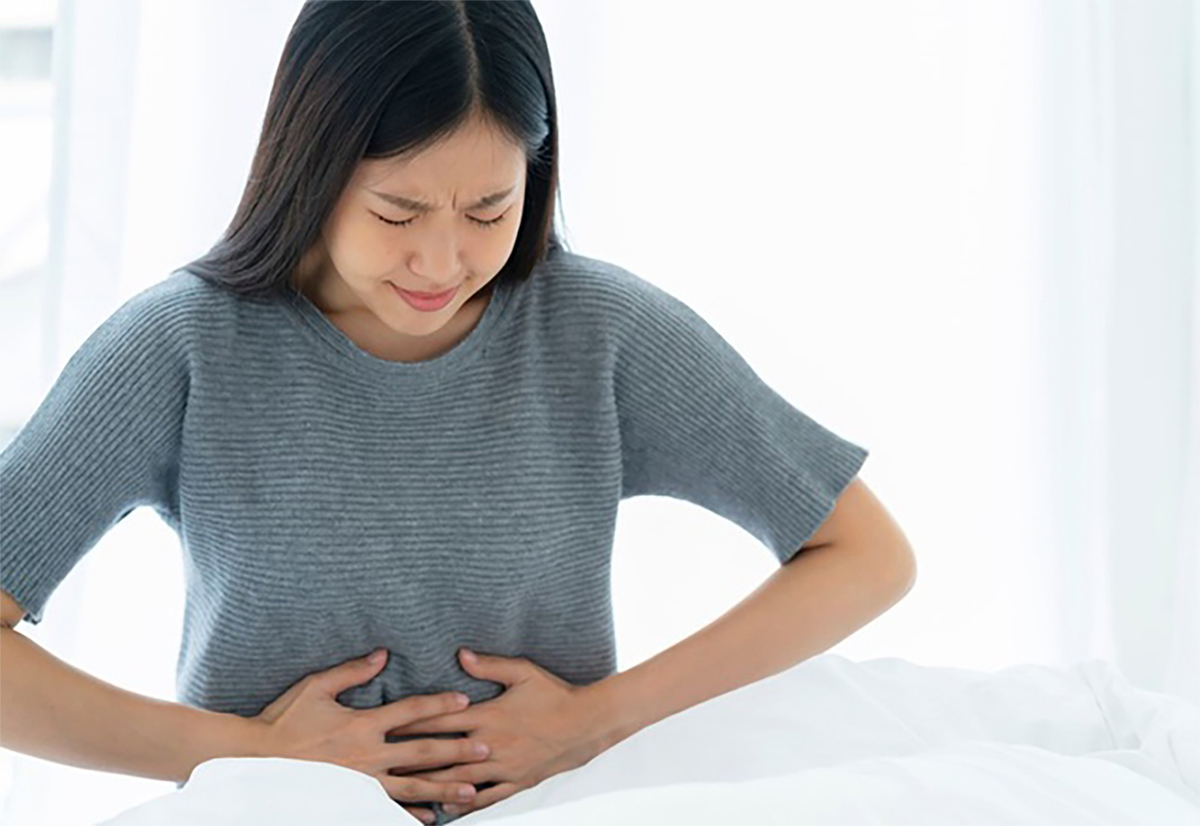For people with peptic ulcer disease, when too hungry or too full, there may also be stomach pain. So what is the cause and how is it appropriate to manage to limit these unpleasant pains?
1. Causes of stomach pain when too hungry or too full
Peptic ulcers have many causes, among which improper diet and living are important causes. If the patient has signs of severe epigastric pain, there is a feeling of grumbling, burning or dull pain accompanied by manifestations: indigestion, belching, heartburn, nausea ... then definitely have stomach problems.
These pains are very uncomfortable, greatly affecting living and working. The pain often recurs when the person is stressed, does not have rest or food, or activities are not in a good way. Patients should eat many small meals throughout the day to help the stomach regularly have food to neutralize acid. Do not let the stomach be too hungry to empty the stomach, contract harder causing pain, even bleeding. Do not eat too full, causing the stomach to enlarge, weak contractions affecting the process of kneading food, increasing rubbing increases pain. Eating food that is too hot or too cold also makes the stomach contract stronger, causing pain... Therefore, following a proper diet and living is the first measure that people with stomach ulcers need to remember to limit unpleasant pain.

2. Eating right helps limit stomach pain
- Eat on time, do not skip meals
Eating erratically without a fixed time will affect the body's circadian rhythm. Eating at the wrong time or skipping meals will cause the stomach to increase gastric secretion, causing stomach damage and causing ulcers. Therefore, patients should pay attention to eat enough meals and on time.
- Eat slowly, chew thoroughly
It is recommended to eat slowly, chewing food thoroughly, because while chewing can further increase the excretion of saliva, which reduces acid secretion and neutralizes the acid contained in the stomach, making digestion easier. After eating, do not exercise vigorously or lie down to sleep immediately, causing food to be undigested, causing bloating and stomach discomfort.
- Split meals
Patients should not eat large quantities of food in one meal, but should divide it into small meals throughout the day. The aim is to avoid an empty stomach, when there is no mucus layer from starch or fiber to prevent it, gastric acid easily comes into contact with the lining of the stomach causing ulcers and increasing pain.
- Eat soft, finely chopped foods
People with stomach pain should eat liquid, soft, easily digestible, easily absorbed foods. As a result, it avoids increased secretion of gastric acid, which causes pain and affects ulcers. Food should also be finely chopped or crushed, which will limit the stomach from having to work hard while hurting.
- Avoid foods that can irritate the stomach
It is necessary to avoid certain foods that can irritate the gastric mucosa such as acidic foods such as oranges, lemons, tangerines, grapefruits, pickles, tomatoes; spicy foods; cold, re-raw food; cigarettes, wine, beer, coffee, solid tea, carbonated water ... These substances stimulate the stomach to increase acid secretion, causing gastro-oesophageal reflux and aggravating pain.
3. Foods that help neutralize stomach acid
To protect the gastric mucosa, patients should use foods that reduce gastric secretion, envelop the mucosa, help neutralize acid in the stomach such as glutinous rice, tapioca, bread, biscuits, potatoes, honey ... Foods rich in fiber such as carrots, potatoes, pumpkin, oats, whole wheat bread ... also has a reducing effect on gastric acid and good absorption in the stomach.
Yogurt is a fermented food that provides beneficial bacteria for the intestines, facilitates good absorption of nutrients while supporting digestion, limiting symptoms of indigestion, bloating and stomach discomfort.
Gasmagel – Thidamagel is a product containing Almagate that neutralizes acid and improves symptoms of heartburn, heartburn, nausea, vomiting, stomach pain; diseases of reflux esophagus, gastric ulcer and duodenal ulcer.
Source: Health & Life Newspaper

See more product infomation here.